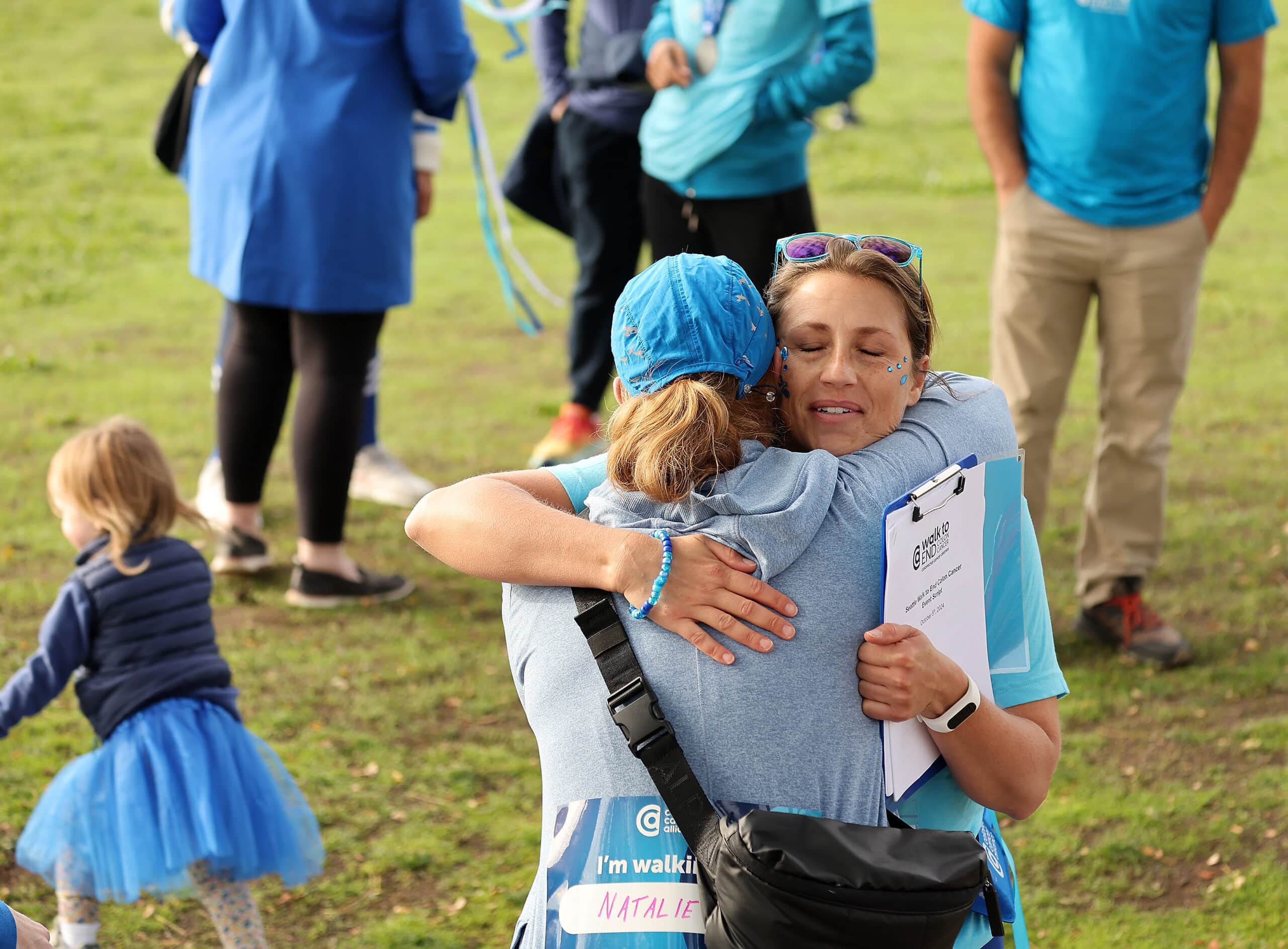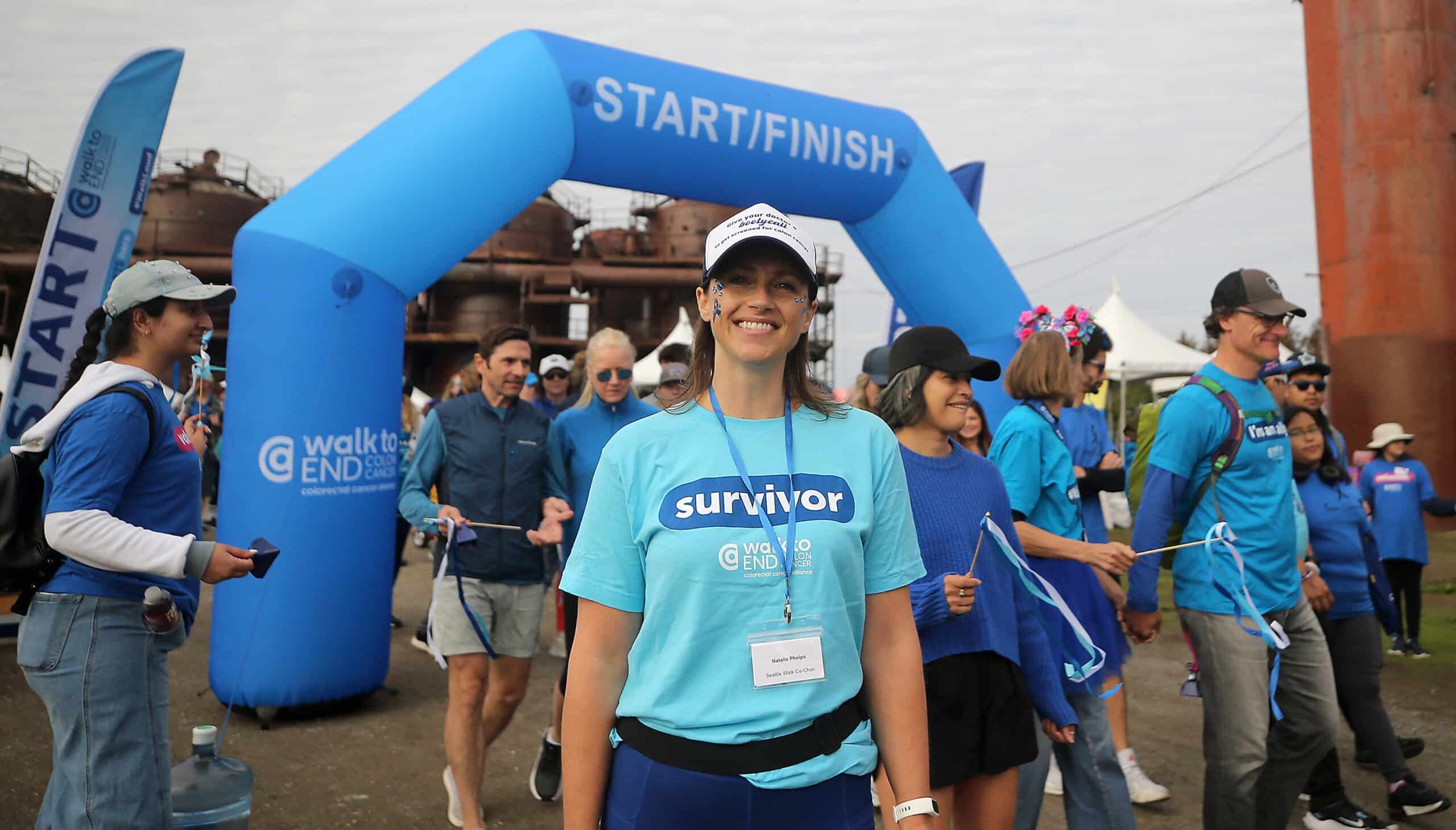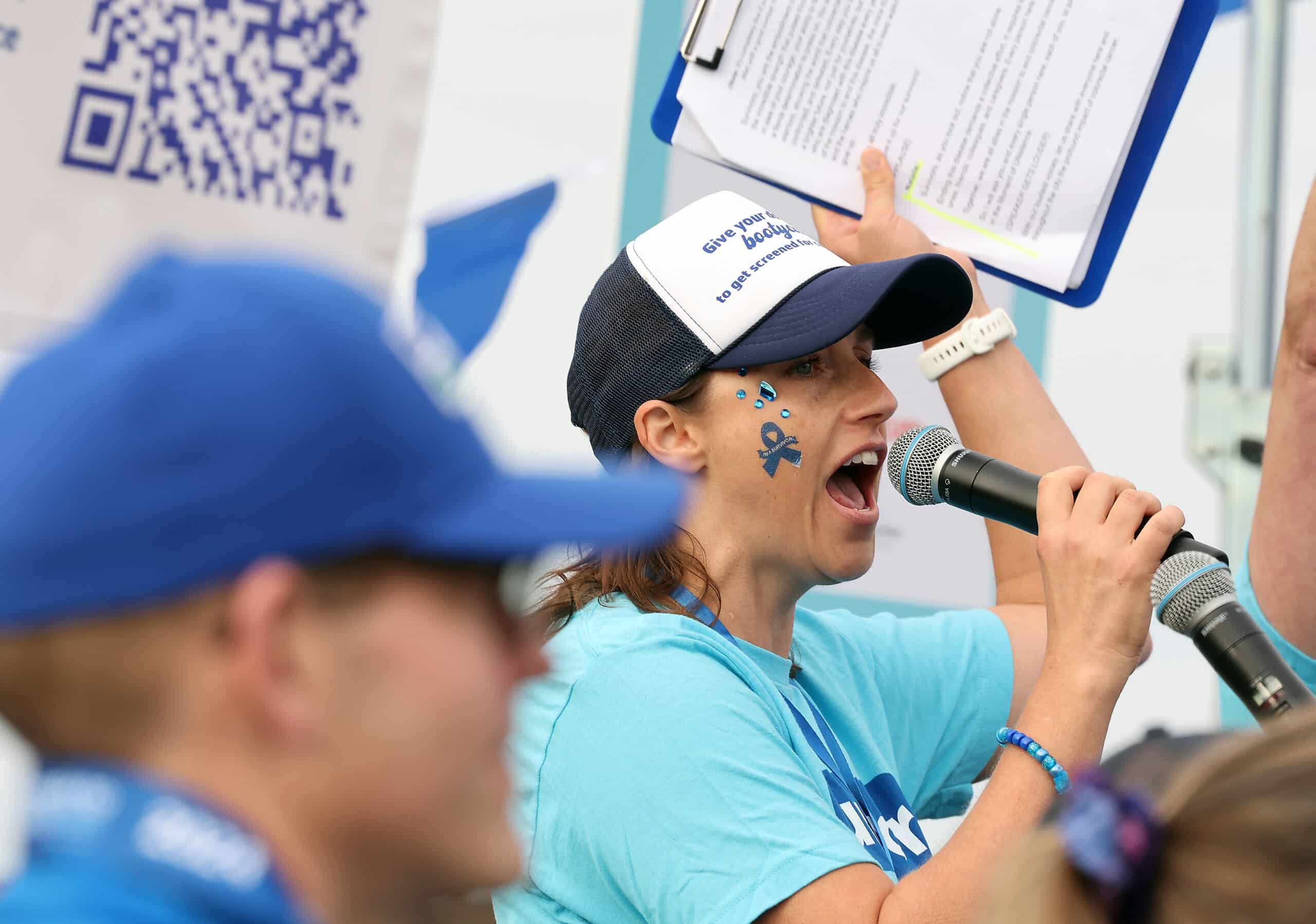Community Health & Wellness
Colorectal cancer increasingly being diagnosed in younger adults
Natalie Phelps and her team, the “Posterior Posee,” were among the nearly 1,000 people who spent the morning of Oct. 5 strolling three miles down the Burke Gilman Trail in Seattle, as part of the city’s annual Walk to End Colon Cancer.
Health & Wellness Sponsor
Health and Wellness stories are made possible in part by Virginia Mason Franciscan Health, a proud sponsor of Gig Harbor Now.
Phelps, a Bainbridge Island resident and advocate for colorectal cancer awareness, has cochaired the walk’s organizing committee since its founding in 2022. It is one of many projects the former elementary school teacher and mother of two has undertaken since her diagnosis four years ago.
Months after giving birth to her second child in 2020, Phelps was diagnosed with Stage 4 Colon Cancer at 38-years-old. Since then she has sought to draw attention to a trend that has puzzled medical researchers: the growing number of adults under 50 diagnosed with colon and rectal cancers.
“I thought I was one of those one-in-a-million unlucky people,” Phelps said of her diagnosis. “Then in time, I started learning more about the disease and I realized what a significant problem it is.”
Significant increase in colorectal cancer among those under 50
Among those under-50, cases of colorectal cancers have steadily increased since the 1990s, according to a report from the American Cancer Society. Colon cancer is now the deadliest cancer for men under 50 and second for deadliest women.
The increase comes even as overall colorectal cancer cases have declined due to regular colonoscopies and lower smoking rates, according to the National Cancer Institute. In Kitsap, rates of these cancers have almost been cut in half between 2020 and 2000, according to data from the Kitsap Public Health District.

Natalie Phelps, right, is embraced by friend Kate McMahan befpre the Seattle Walk to End Colon Cancer at Gas Works Park in Seattle on Oct. 5, 2024. Photo by Meegan M. Reid/Kitsap Sun
It remains unclear what has caused cases to increase among young adults. Some researchers suggest it may be an environmental rather than biological.
“We’ve seen a pretty significant increase in less than a generation,” Dr. Mukta Krane, a colorectal surgeon at Fred Hutch Cancer Research who worked with Phelps, told Fred Hutch News Service. “Most of us who do research in this area think it’s likely due to environmental causes, but it’s hard to pinpoint what they might be.”
Symptoms easy to misdiagnose
Phelps was eight months pregnant with her daughter in January 2020 when she first started to notice unusual levels of pain. Medical providers chalked it up a first to her pregnancy. But nine weeks postpartum, debilitating levels of pain and irregular bowel movements persisted.
At her age, doctors thought Phelps was too young to have developed colon cancer. One provider thought it could be the result of postpartum depression. The doctor referred to a therapist. She tried antidepressants. A gastroenterologist thought it could be Crohn’s disease or colitis.
Part of the challenge for medical providers in diagnosing colon cancer is symptoms like abdominal pain, weight loss, irregular bowel movements or rectal bleeding can often be benign in young adults.
Eventually, Phelps had a colonoscopy and doctors discovered a tumor in her rectum. The cancer had already reached Stage 4 – the most serious – and spread to her liver. She began chemotherapy through Fred Hutch Cancer Research Center in the fall. Her daughter was only five months old at the time and her son was 3.
“My daughter’s whole life I’ve been in treatment,” Phelps said. “I didn’t know if I would even see her first birthday.”
Seeking support
Phelps went through four months of chemo followed by additional radiation therapy, before having a surgery survey to remove the tumor. According to Fred Hutch, the complex procedure lasted 18 hours. It required four surgeons, one to remove the primary tumor, two to address its spread to the liver and vaginal wall, and a plastic surgeon to perform reconstruction.
In the ensuing three years Phelps has gone in for follow up surgeries and chemotherapy on her liver and underwent a Gamma Knife radiation for a brain tumor that doctors detected, Fred Hutch said. Phelps says she has been grateful for the Fred Hutch Clinic in Poulsbo, where she has gone for much of her chemo.
During her first year in treatment, Phelps focused primarily on her health and going to appointments. But sitting in the waiting room at Fred Hutch, surrounded by patients who were much older, the isolation of it weighed on her.
“Being someone in their 30s who had just had a baby, it was devastating,” she said. “I had this draw to find other people like me.”

Natalie Phelps, of Bainbridge Island, at the starting line of the Seattle Walk to End Colon Cancer at Gas Works Park on Oct. 5, 2024. Photo by Meegan M. Reid/Kitsap Sun
Phelps started using resources from the Colorectal Cancer Alliance, the country’s leading nonprofit in colorectal cancer research. No local support groups were available to her, but through the alliance she connected with a woman from Portland who also received a stage four diagnosis after giving birth.
Earlier screenings
At a virtual conference, she connected with Brianna Mercker, a Seattle resident diagnosed at age 38 and the mother of young children. Mercker initiated the idea for the Seattle cancer walk, Phelps said, asking her to help organize it. They launched the event with 600 attendees in 2022. Phelps has also documented her experiences on social media and spoke to media, including the Today Show and Boston’s NPR affiliate about her story.
Compared to diseases like breast cancer, Phelps said, there are fewer options for treatment of colorectal cancers outside of chemotherapy and early screening. She encourages people to get screened through a colonoscopy or an at home-test kit.
Medical providers, including the American Cancer Society, now recommend that adults of average risk begin regular colorectal cancer screening at 45, five years earlier than before.
“It’s something we can prevent,” Phelps said. “We need to let people know about it. It’s not only an old man’s disease anymore.”

Natalie Phelps tells the crowd to get loud at the Seattle Walk to End Colon Cancer at Gas Works Park on Oct. 5, 2024. Photo by Meegan M. Reid/Kitsap Sun

